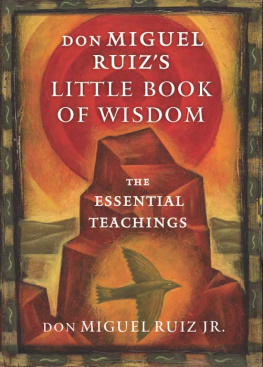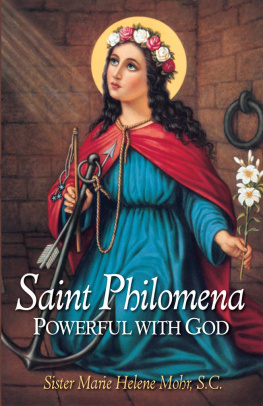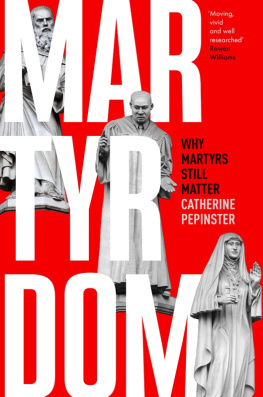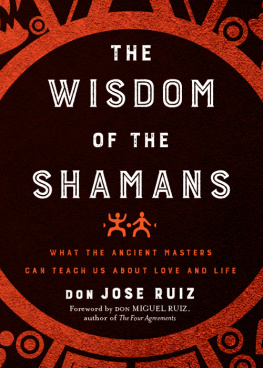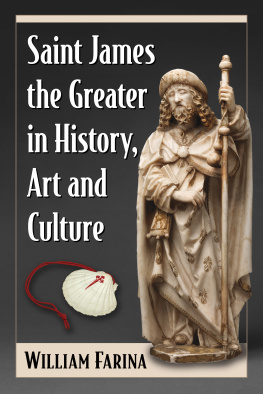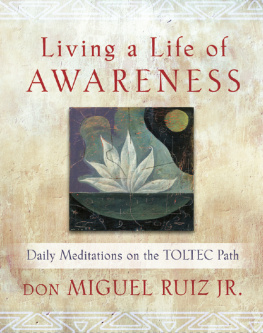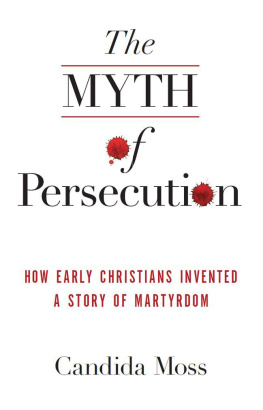
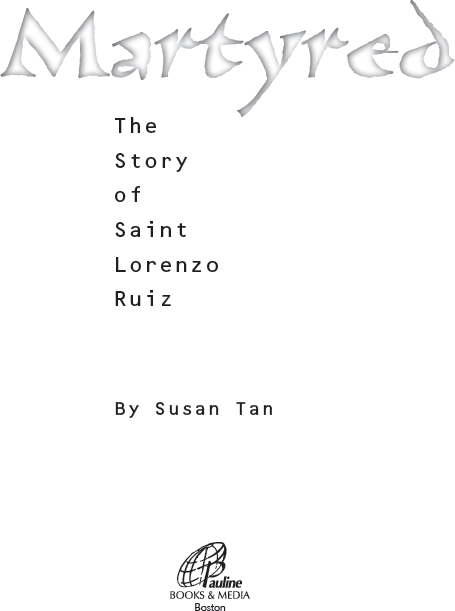
Library of Congress Cataloging-in-Publication Data
Tan, Susan, 1960
[Martyrdom of St. Lorenzo Ruiz]
Martyred : the story of Saint Lorenzo Ruiz / by Susan Tan. -- First North American edition.
pages cm
Originally published as The martyrdom of St. Lorenzo Ruiz. Pasay City, Philippines : Paulines Pub. House, 2007.
ISBN-13: 978-0-8198-4934-2
ISBN-10: 0-8198-4934-0
1. Ruiz, Lorenzo, -1637--Fiction. 2. Christian
saints--Philippines--History--17th century--Fiction. 3.
Martyrdom--Christianity--History--17th century--Fiction. 4.
Japan--Civilization--1600-1868--Fiction. I. Title.
PS3620.A68365M37 2014
813.6--dc23
2013026334
The Scripture quotations contained herein are from the New Revised Standard Version Bible: Catholic Edition, copyright 1989, 1993, Division of Christian Education of the National Council of the Churches of Christ in the United States of America. Used by permission. All rights reserved.
Cover design by Mary Joseph Peterson, FSP
Cover art by Jeff Falerni
Originally published by Daughters of St. Paul Philippines in English as The Martyrdom of St. Lorenzo Ruiz: The Last Witness Among Them by Susan Tan
Copyright 2007 Susan Tan and Daughters of St. Paul Philippines
2650 F.B. Harrison St., 1300 Pasay City, Philippines
This is a novelized retelling of the life of Saint Lorenzo Ruiz and his companions. While the main characters are real and the account of their martyrdom is historical, elements of this storyincluding characters, conversations, and eventsare fictional products of the authors imagination.
All rights reserved. No part of this book may be reproduced or transmitted in any form or by any means, electronic or mechanical, including photocopying, recording, or by any information storage and retrieval system, without permission in writing from the publisher.
P and PAULINE are registered trademarks of the Daughters of St. Paul.
First North American edition, 2014
Published by Pauline Books & Media, 50 Saint Pauls Avenue, Boston, MA 02130-3491
Printed in the U.S.A.
www.pauline.org
Pauline Books & Media is the publishing house of the Daughters of St. Paul, an international congregation of women religious serving the Church with the communications media.
1 2 3 4 5 6 7 8 9 | 18 17 16 15 14 |
Do not invite death by the error of your life, or bring destruction by the works of your hands; because God did not make death, and he does not delight in the death of the living.
Wisdom 1:1213
The last enemy to be destroyed is death.
1 Corinthians 15:26
PROLOGUE
A utumn arrived with an annual visitor to Nagasaki, a remote seaport hemmed in by steep mountains on the island of Kyushu in southwest Japan. Jomei stood, not as physically tall as he once was, but with great presence nonetheless. He very much anticipated his guests arrival, though he was uncertain how long he could sustain this annual reunion. It was true that Jomei had been a samurai, but he was not as agile as the spirit that came to meet him in his old age. Yet Jomei anticipated this guest with increasing devotion, as one looks forward to a good friends arrival from afar. Opening the door, his white hair caught the breeze as he bowed. Lorenzo, he whispered.
Jomeis guest was, in truth, a ghost from long ago outside of time and ageless. He was not unlike the spirits Jomeis ancestors had called to in their need. But this was no divinity or demigod, nor did he come with vengeance to punish Jomei. The spirits presence was strangely one of comfort, even solace. Yet, friendship could never have grown between them when the man was alive. The doors to outsiders had long since slammed shut with the shoguns rigid policy of isolating Japan. And a tormentor and his victim are unlikely companions. There are things a man must live with and bear as a mark upon his soul.
At one time Jomei might have put an end to his existence in seppuku, death by a self-inflicted mortal wound with his own sword. It was a horrible but quick escape from life and its burdens. But such an end troubled him. If this life is all there ishow could it be justified? Still more the persistence of something he could not understand pursued him like an overpowering wave at sea as it plunges down on its poor victims. Jomei had lived honorably, beyond what any standard might have demanded of him. Yet there was a greatness he could not fully comprehend. He had glimpsed a freedom and height he could not successfully scale, a depth he could not wholly explore apart from the powerful force of his will to live. The hope of reaching it had cost Jomei something more than honor.
He carried in remarkable detail the memory of what had initially caused him shame. Yet gauging from the annual visits which came at the anniversary of his guests execution, death seemed to be rendered harmless because it was without lasting victory. Is death no more than a momentary sting? Perhaps for some.
The circumstances of their meeting were too absurd to nurture any bond of brotherhood between them. Instead, Jomei and his visitor were bound by torture and rage. For a time they had shared a spot on the earth and their destinies were forever linked because of it. Throughout the 590 mile journey from Okinawa to Nagasaki, each of them made small decisions. But it was not as if either of them had a real choice in the matter. The outcome was predetermined, but how it played out was the result of a conscious decision to believe or not to believe, to die victorious or in defeat. Between Jomei and his guest, it was a matter of faith.
Lorenzo Ruiz had died in the execution of six men, all of them Catholics. They were led up a hill overlooking Nagasaki Bay and thrown into a well. Hung from their feet, their heads dangled above sharpened stakes, while their rotting flesh was invaded by feasting maggots. They perished through hemorrhage and asphyxiation. Lorenzo Ruiz was not the last to die. Still, it was Ruiz who made the most lasting impression in Jomeis mind because he was neither a cleric nor Japanese. He had died on a Wednesday thirty years beforeSeptember 29, 1637three days after Jomei had ordered his men to slice gashes into their heads.
Jomei fulfilled the duty his position demanded of him. He had planned and ordered their torture and execution. Jomei could still see the iron stain and smell the metallic odor of blood in the execution pits. He could hear their groans rising amid the dampened walls. Their crime was absolutely clear. They were foreigners; and worse, Christians. But peace was something that had eluded him ever since.
And yet on the anniversary of his execution, the unseen guest arrived and lodged with Jomei in his home. The encounters were cordial and informal, like the reunion of two comrades swapping stories of past battles. They were also brief, all but concluding as soon as they commenced. Jomei was always left with the misery of wanting more. This only worsened the heavy burdens he carried in his mind and, more grievously, in his heart.
Jomei kept a list of their names. Believing he had committed an irreversible error, he made a daily ritual of reciting them for the thirty years that had passed. Among those he had killed, Lorenzo Ruiz was the only one who was married and the head of a family. Perhaps this was what troubled Jomei most. The others were European missionaries, Dominicans, traveling with a Japanese Christian convert and a priest.
Next page


